SAUL WILLIAMS / “Black Stacey”
I'm not a crusader for hip-hop, or for language, even though I deal with words. I deal with words to point at the spirit. You know what I'm saying? I'm more concerned about the evolution of humanity. And the music that I make, be it hip-hop or rock, and the language that I use, be it spoken or written, is aimed at invisible things that one can only connect to through prayer and meditation. And my concern is seeing that meditative state becoming reality in all of our lives so that we can live peacefully; not just with each other, and not just in some government standardized version of the Martin Luther King dream way, but in a way that is harmonious with the universe and that is beyond militarism. —Saul Williams http://www.earpollution.com/v2/vol4/features/interviews/saulwilliams/
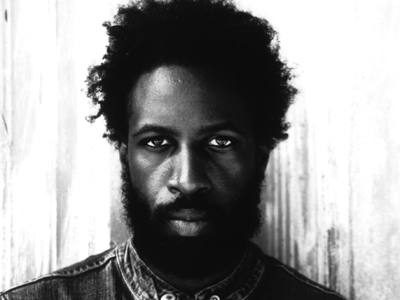 I have a lot to say about Saul in general and “Black Stacey” in particular—and I’ve said most of it already in a personal essay I wrote to / for / and about Saul. You can read it here. It’s called: BLACK STACEY.
"Black Stacey," the selected cut speaks for itself. I like the video, too. Click here to view Black Stacey video. http://www.saulwilliams.com/#depth
After you listen to the cut, think about your own insecurities growing up—and when you realized you had to live with yourself because you weren’t going to ever really be something you’re not—you might can become something else, but, at any given moment, the best you can be, can do, is be/do all that you are/all that you’re capable of. Or something.
I have a lot to say about Saul in general and “Black Stacey” in particular—and I’ve said most of it already in a personal essay I wrote to / for / and about Saul. You can read it here. It’s called: BLACK STACEY.
"Black Stacey," the selected cut speaks for itself. I like the video, too. Click here to view Black Stacey video. http://www.saulwilliams.com/#depth
After you listen to the cut, think about your own insecurities growing up—and when you realized you had to live with yourself because you weren’t going to ever really be something you’re not—you might can become something else, but, at any given moment, the best you can be, can do, is be/do all that you are/all that you’re capable of. Or something.
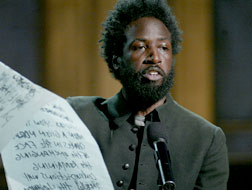 Saul’s work/words work that way. Philosophically. He’s a shaman/surgeon. Opens up your head, spills his guts to show you how to spill yours. And asks you to do a divination of your internals, your entrails. Like do you think you’re “too” or “not enough”?
It’s a brilliant song, young man.
I’m not crazy about Saul’s entire oeuvre, or even all the cuts on his eponymous album, but then, no one can (or should) like everything.
Saul’s work/words work that way. Philosophically. He’s a shaman/surgeon. Opens up your head, spills his guts to show you how to spill yours. And asks you to do a divination of your internals, your entrails. Like do you think you’re “too” or “not enough”?
It’s a brilliant song, young man.
I’m not crazy about Saul’s entire oeuvre, or even all the cuts on his eponymous album, but then, no one can (or should) like everything.
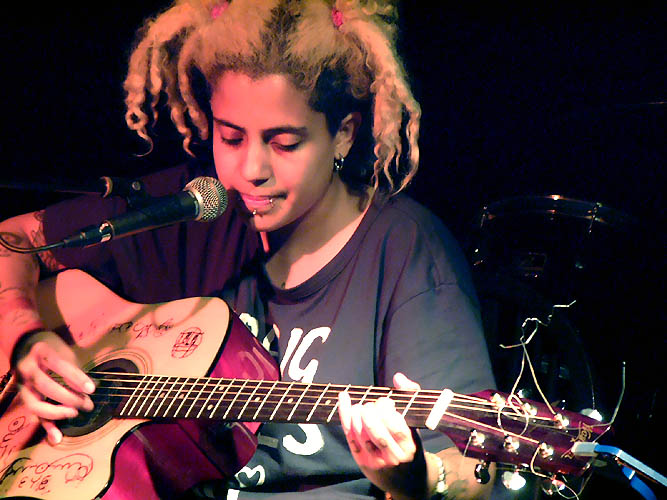 Now, this other chile, Kimya Dawson, her little piece made me smile my most sarcastic smile. Click here to visit Kimya’s website: http://www.kimyadawson.com
The song is downright amateur hour as far as the music-qua-music. But the sentiment it sophisticatedly expresses in it’s naïve-sounding way is crucial, especially within the youth-oriented, highly-sexualized culture that is post-modern America. I laughed; but child pornography, the sexual molestation of children, pedophilia, the recurring nightmare of religious figures engaged in biblical knowledge of lambs (sometimes both literally and figuratively!), well, ain’t a damn thing funny about any of that!
And make no mistake, what I’m trying to express is not self-righteous disgust, nor even fake-jake “lock ‘em up & throw away the key” anger at the perps. As a high school teacher, what I deal with and what I am most concerned about is the health and well-being of the youth. I am clear. Even if we locked up all the fucked-up adults, we would still have to deal with the young people whose lives have been twisted, whose vision of themselves and their future has been twisted. How do we untwist?
Now, this other chile, Kimya Dawson, her little piece made me smile my most sarcastic smile. Click here to visit Kimya’s website: http://www.kimyadawson.com
The song is downright amateur hour as far as the music-qua-music. But the sentiment it sophisticatedly expresses in it’s naïve-sounding way is crucial, especially within the youth-oriented, highly-sexualized culture that is post-modern America. I laughed; but child pornography, the sexual molestation of children, pedophilia, the recurring nightmare of religious figures engaged in biblical knowledge of lambs (sometimes both literally and figuratively!), well, ain’t a damn thing funny about any of that!
And make no mistake, what I’m trying to express is not self-righteous disgust, nor even fake-jake “lock ‘em up & throw away the key” anger at the perps. As a high school teacher, what I deal with and what I am most concerned about is the health and well-being of the youth. I am clear. Even if we locked up all the fucked-up adults, we would still have to deal with the young people whose lives have been twisted, whose vision of themselves and their future has been twisted. How do we untwist?
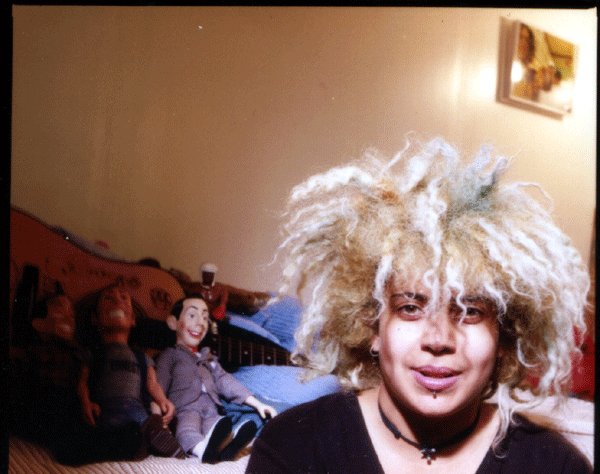 Kimya’s song about heroes falling off the wall, in it’s own almost childlike way, brings the question right down front. What I like most is she is defiant. While acknowledging her hurt, she remains gently resolved in her own determination to stand steadfast.
I know “they” won’t, so I won’t even seriously say: they ought to play these songs over the intercom first thing every Monday morning in schools across this country. But, you know, sometimes we are the “they” we say won’t do something.
Unless we are doing something different, we actually are the “they” who go about our business everyday knowing it isn’t but steady be acting like the world is OK. The world is not OK. And it is not good to be a “they.” It is not good to feel helpless like a child being molested by adults. Far too many of our leaders are fucking with us: they the molesting adults, we the molested youth.
I know we feel helpless, but are we really helpless? Hapless? Are we adults or just big babies unable to fend for ourselves, unable to resist those who prey on us, unable to figure a way forward?
Imagine a child being you.
Just like you as a child, outwardly, grew up to be you the adult, imagine, what kind of adult will the children you deal with become if they become like you.
Moreover, what about your inner child? Not only think about a child being you, but think about you being your inner child.
That’s what these two songs say to me.
—Kalamu ya Salaam
Kimya’s song about heroes falling off the wall, in it’s own almost childlike way, brings the question right down front. What I like most is she is defiant. While acknowledging her hurt, she remains gently resolved in her own determination to stand steadfast.
I know “they” won’t, so I won’t even seriously say: they ought to play these songs over the intercom first thing every Monday morning in schools across this country. But, you know, sometimes we are the “they” we say won’t do something.
Unless we are doing something different, we actually are the “they” who go about our business everyday knowing it isn’t but steady be acting like the world is OK. The world is not OK. And it is not good to be a “they.” It is not good to feel helpless like a child being molested by adults. Far too many of our leaders are fucking with us: they the molesting adults, we the molested youth.
I know we feel helpless, but are we really helpless? Hapless? Are we adults or just big babies unable to fend for ourselves, unable to resist those who prey on us, unable to figure a way forward?
Imagine a child being you.
Just like you as a child, outwardly, grew up to be you the adult, imagine, what kind of adult will the children you deal with become if they become like you.
Moreover, what about your inner child? Not only think about a child being you, but think about you being your inner child.
That’s what these two songs say to me.
—Kalamu ya Salaam
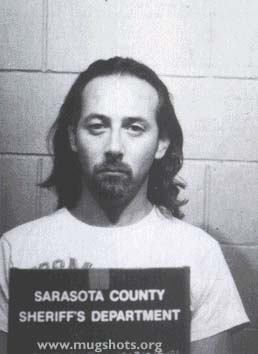 What did pee wee do?
What I like about both of these songs is their energy, their honesty, their passion. We (the listeners) aren’t just listening to what they (the MC/singer) are saying, we are feeling what they’re saying. We may or may not agree, but we can’t deny that these two performers are putting themselves out there in a real way.
Both of these records remind me of the glory days of hip-hop (’83-’90 for me) when MCs could (and often did) say whatever they felt like saying. Some MCs were funny. Some were angry. Some were nasty. Some were thoughtful. Some were stupid. Some were brash and confident. Some were so reticent you wondered how they ever worked up the nerve to get on stage. Some MCs seemed to be all of these at once (early De La and the second Beastie Boys album come to mind). Today, it’s as though all the passion and energy and life has been sucked out of the music.
If you listen closely, you can hear mumbling and whispering in the background of most every rap record on the radio: it’s the sound of the MC and the producer and the label and the A&R man and the A&R man’s girlfriend and the MC’s fifty-two homies that he carts around with him where ever he goes, all praying for the record to hit it big so they too can have lots of money and notoriety and shiny stuff.
In complete contrast, neither Saul nor Kimya have even the slightest illusion about the chances of their respective records going into heavy rotation on somebody’s radio or video station. So instead of hoping and wishing and praying and cooning for a hit, they’re simply being real. They’re actually attempting to communicate—a novel idea, apparently. Their realness comes through in a beautiful way.
Funny thing is, I don’t even like the songs all that much. Actually, I do dig “Black Stacey” a little. I’m not crazy about the production but I like Saul’s style a lot. He knows the difference between speaking, MCing and singing (most don’t) and because he does know the difference, I really like hearing him navigate the boundaries between all three—sometimes he’s obviously rapping, sometimes he’s talking, sometimes it sounds like he’s about to break into song. But just as “Black Stacey” represents a lot of what was good about Golden Age hip-hop, it also represents a lot of what was eventually improved on. The homemade-sounding production quality; abrupt, almost random beginnings and endings; the hyper-focus on self. (Hip-hop as an episode of Sesame Street: “The previous 10 years of rap music have been brought to you by the words ‘me’ and ‘my’ and the letter ‘I.’”) Then again, in Saul’s defense, he’s got a lot on his plate. Making records is just one of the many, many things he’s got going on. And, of course, everybody can’t afford Kanye.
As for Kimya’s tune—you’re right, it is funny. And you’re also right that it’s horrific. (If you can’t laugh, what can you do?) But you’re also right about the song-craft part. As social commentary it’s dead-on. As a piece of music, well….
And one other thing: what did Pee Wee do that was so bad? I know the whole bit about him masturbating in the movies, but if that’s all there was (and maybe there was more—he wasn’t a hero of mine so I wasn’t really paying attention) is that really enough to get him lumped him with a serial child-rapist? They both have their problems, obviously, but Michael is a menace to society…or at least to every boy in Santa Barbara County under the age of 12. Pee Wee, on the other hand (no pun intended), seems like he’s a menace only to himself.
—Mtume ya Salaam
What did pee wee do?
What I like about both of these songs is their energy, their honesty, their passion. We (the listeners) aren’t just listening to what they (the MC/singer) are saying, we are feeling what they’re saying. We may or may not agree, but we can’t deny that these two performers are putting themselves out there in a real way.
Both of these records remind me of the glory days of hip-hop (’83-’90 for me) when MCs could (and often did) say whatever they felt like saying. Some MCs were funny. Some were angry. Some were nasty. Some were thoughtful. Some were stupid. Some were brash and confident. Some were so reticent you wondered how they ever worked up the nerve to get on stage. Some MCs seemed to be all of these at once (early De La and the second Beastie Boys album come to mind). Today, it’s as though all the passion and energy and life has been sucked out of the music.
If you listen closely, you can hear mumbling and whispering in the background of most every rap record on the radio: it’s the sound of the MC and the producer and the label and the A&R man and the A&R man’s girlfriend and the MC’s fifty-two homies that he carts around with him where ever he goes, all praying for the record to hit it big so they too can have lots of money and notoriety and shiny stuff.
In complete contrast, neither Saul nor Kimya have even the slightest illusion about the chances of their respective records going into heavy rotation on somebody’s radio or video station. So instead of hoping and wishing and praying and cooning for a hit, they’re simply being real. They’re actually attempting to communicate—a novel idea, apparently. Their realness comes through in a beautiful way.
Funny thing is, I don’t even like the songs all that much. Actually, I do dig “Black Stacey” a little. I’m not crazy about the production but I like Saul’s style a lot. He knows the difference between speaking, MCing and singing (most don’t) and because he does know the difference, I really like hearing him navigate the boundaries between all three—sometimes he’s obviously rapping, sometimes he’s talking, sometimes it sounds like he’s about to break into song. But just as “Black Stacey” represents a lot of what was good about Golden Age hip-hop, it also represents a lot of what was eventually improved on. The homemade-sounding production quality; abrupt, almost random beginnings and endings; the hyper-focus on self. (Hip-hop as an episode of Sesame Street: “The previous 10 years of rap music have been brought to you by the words ‘me’ and ‘my’ and the letter ‘I.’”) Then again, in Saul’s defense, he’s got a lot on his plate. Making records is just one of the many, many things he’s got going on. And, of course, everybody can’t afford Kanye.
As for Kimya’s tune—you’re right, it is funny. And you’re also right that it’s horrific. (If you can’t laugh, what can you do?) But you’re also right about the song-craft part. As social commentary it’s dead-on. As a piece of music, well….
And one other thing: what did Pee Wee do that was so bad? I know the whole bit about him masturbating in the movies, but if that’s all there was (and maybe there was more—he wasn’t a hero of mine so I wasn’t really paying attention) is that really enough to get him lumped him with a serial child-rapist? They both have their problems, obviously, but Michael is a menace to society…or at least to every boy in Santa Barbara County under the age of 12. Pee Wee, on the other hand (no pun intended), seems like he’s a menace only to himself.
—Mtume ya Salaam
This entry was posted on Sunday, August 28th, 2005 at 12:02 am and is filed under Contemporary. You can follow any responses to this entry through the RSS 2.0 feed. You can leave a response, or trackback from your own site.
2 Responses to “SAUL WILLIAMS / “Black Stacey””
August 29th, 2005 at 8:20 am
Saul Williams is one of the only lyricists who repeatedly makes me feel like my head will explode…in the best way. I love this piece, but I might choose “The Tao of Now” from the first album or “Twice The First Time” from the Eargasms project as the best merging of his verbal skills with a high production value. No surprise that his dad is a preacher. You can hear it in almost every vocal delivery that many people attribute to hip-hop. But then again, preachers are the original MCs, aren’t they? 🙂
August 29th, 2005 at 11:24 am
First of all – great site. i love your choice of songs, and the commentary is on point.
But I think you are underselling your man Saul. I met Saul briefly at a poetry reading in college. Prior to that I knew of him from his book The Seventh Octave, and his track on the Eargasms album.
In addition to delivering a fantastic spoken word performance, Saul riffed about what music he was into and Egyptian religion. He shared a lot of my opinions on good hip hop, and as someone studying Egyptian religion at the time, I thought the coincidence was somewhat eery.
After the encounter, I went back and watched SLAM and read some of his other stuff. When his first album dropped, I immediately scooped it up.
The album seemed mostly like spoken word set to music. As always, Saul’s words impressed me. The production seemed heavy to me, but I was mostly into it for the words and Saul didn’t disappoint (a purple dinosaur that speaks of love/a black man that speaks of blood/ which one is keepin it real son)
But his most recent album was actually one of my favorites of last year. The lyrics were even better, even more honest and poignant. The sound was still heavy for my tastes, but I saw it as more of a synthesis then the first album. The music had the anger, the humor, the passion that the words did – and having the pulsing sound of the music behind the words gave them a heart-beat like importance. And Saul’s blend of speaking, rhyming and singing (as you mentioned) were uniquely his.
But for me, listening to Saul is still about the lyrical content. And he has some amazing things to say on the album, things that to me are too important to write off just because they aren’t set to a more traditional hip hop beat. “I gave hip hop to white boys when nobody was looking/ found it locked in the basement when they gentrified brooklyn” One of the dopest hip hop lines of the past few years, and even more illuminating when it is delivered at a concert full of bouncing white heads like the one I saw. I think this is what makes Saul interesting – he makes a song like Black stacy that can actually universally make anyone feel the social and class issues associated with skin color. While it might be more powerful for audiences of color, the honesty is so stirring that it makes the song speak to anyone – and make them refelct on their own similar insecurities even if they aren’t racial in origin. Kanye doesn’t do that at his best – in fact few MCs have ever had that type of charisma in my eyes (Tupac being one of the only others that comes to mind)
But what makes Saul the true warrior prophet in my eyes, is what happened one night when I was at a show of his. His guitar shorted out on him, almost electrocuting him. So what does he do? He has the band stop playing, slings his guitar back and spits one of his best poems in my eyes – Sha Clack Clack. But the best part is that the audience is just as enthralled to hear the man talk as they are to hear them sing/rhyme/perform.
No matter how tight his beats are there is not another MC out there who I want to hear lecture about anything other than music. But Saul trancends the MC classification. And I think that makes his music more powerful, not less.
Just some thoughts.
Leave a Reply
| top |